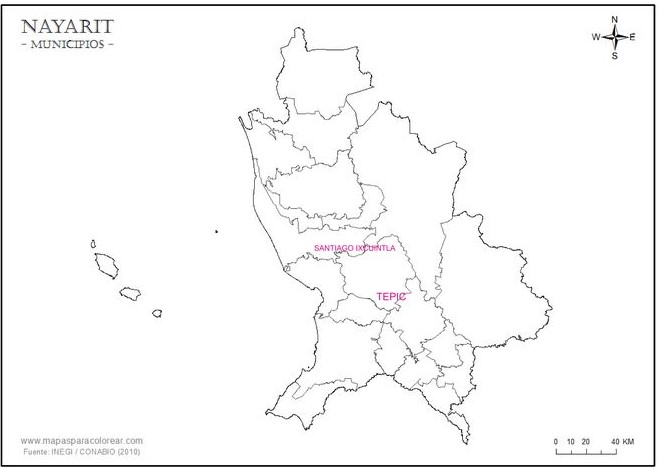The crisis of 1943

In 1943, during the Second World War, Mexico was again faced with a silver crisis (there was a combination of reasons: anticipation of a rise in the price of silver; the Mexican government’s agreement to sell practically its entire silver production to the United States for its military industry; and a boom in the Mexican and US jewellery industries). On 21 August it imposed a heavy export tax on silver products, to make it unprofitable to melt down silver coins to ship as bullion, and temporarily suspended a contract which promised all surplus silver production to the United States. However because of a shortage of fractional coinage, especially the fifty centavos denomination, it was compelled to authorise banks to issue cheques with printed denominations of twenty-five and fifty centavos. All these issues were quickly withdrawn.
Santiago Ixcuintla
Cámara Nacional de Comercio
On 24 September the local Cámara de Comercio issued 50c cheques[image needed] drawn on the branch of the Banco de México in Ruiz, Nayarit, signed by Rafael Tortajada, manager of the Compañía Comercial NayaritaEl Informador, Guadalajara, 30 September 1943.
|
Rafael Tortajada Rivera was born in Catemaco, Veracruz in 1894. He had been Contador General of the Customs (Aduana Marítima) in Túxpan, Veracruz in 1916El Pueblo, 14 November 1916 and Contador of the Customs in Reynosa, Tamaulipas in 1918Periódico Oficial, Tamaulipas, 7 December 1918. A childhood friend, Pedro Maus, suggested he should try his hand at growing tobacco so in 1926 he arrived at the hacienda El Nuevo in Santiago Ixcuintla, centre of an area called the Costa de Oro Nayarita. He became an expert in tobacco production, manager of the Compañía Comercial Nayarita, very wealthy and powerful. In September 1944 he was elected to the first board of the newly-created Banco Mercantil de Nayarit in TepicEl Informador, Año XXVII, Tomo XCIX, Núm. 9383, 13 September 1944. By 1957 he was a millionaire and one of the powerful local lords (poderosos caciquillos de pueblo) whose son could beat up a journalist with impunityEl Informador, 20 June 1957. However, he lost his fortune in a series of disastrous projects, such as an ice factory or breeding frogs for their legsManuel Narváez Avalos, Gajos de mi historia, UAN, 2004. He died in October 1983. |
